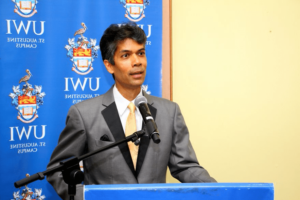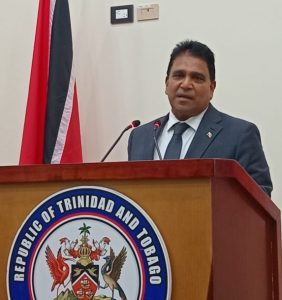
FEW people would disagree that there are communities within developed countries that have strikingly similar socio-economic conditions existing in developing countries.
An illustration is the slums and overcrowded towns within the developed countries. It is these cities and slums that are sometimes the magnets for unemployed migrants and refugees. Everyone has a role to play in aiding and understanding the plight of refugees. Their problems are often complex and involve situations which the vast majority in developed countries will never encounter.
Economic and political ideologies are nightmares which have failed humanity. The promises of equality, full employment and happiness remain as illusions. Possibly because of the need for humans to have freedom and also the greed for an unequal share in natural resources. It is certainly human nature rather than the economic system which perpetuates and intensifies many of today’s social problems.
There is a need to develop new, more effective tactics, design better policies and monitor their implementation in an effort to eradicate and solve the crisis in all developing countries. Undoubtedly, developing societies must be carefully analysed and the necessary economic models cannot simply be imported and implemented.
These must be properly tailored and monitored to ensure the impact of legislation that is beneficial to the majority, rather than a minority of the population. This would demand high levels of creativity as those concerned with improving the suffering masses search for and experiment with different economic and political systems.
Why must a developing country’s currency be so devalued and worthless that its people are forced to sell body organs? Why must thousands die because of a lack of basic medicine or food? In developing countries the basic law of Economics– supply and demand, is not consistent.
There could be a high demand because supply is usually low. Even when supply is plentiful, the demand remains high because of the fear that the supply would soon be low. It is this basic overturning of the law of supply and demand which is an indicator of the serious state of the Heavily Indebted Poor Countries (HIPC).
Political and economic concepts and phrases such as Gross Domestic Product (GDP) are meaningless to the poor. The unemployed, the poor, and struggling working class do not care about these economic terms relating to the productivity of a country. One thought is on the minds of those in poverty and struggling on a daily basis – survival.
There is a need for citizens of developing countries to take a great leap backwards and seriously assess their course of action. Why? Because they are unwilling participants in a pseudo-international economic order in which the developed countries continue to dominate trade and the developing countries are given token roles, a voice but no power. They are deceived into believing they will benefit. Poorer nations are hurtling headlong in a mad rush to embrace globalization without understanding the drastic implications on their economies.
Social service organisations as the Rotary, Kiwanis and Lions coupled with religious leaders need to desperately increase their collaboration with non-governmental organisations (NGOs), civil society organisations, volunteers, international bodies and concerned citizens to ensure that such priorities as the progress and peace among developing nations are achieved. The need for networking cannot be exhausted. Among developing countries, there is a need to strengthen the bonds of friendship and encourage the exchange of ideas, technology and labour.

Each citizen of the Global South, who is mentally and physically able, should be involved in some form of worthy activism or voluntary endeavour.
No activity is too simple, too insignificant and unworthy if it involves easing the burdens of another living creature. Each drop of sweat, every cent, every second spent in a worthwhile activity will surely go a long way in saving souls and improving the environment. Citizens must be taught to avoid postponing, until retirement or later in life, the decision to begin an activity that could save someone’s life today and increase the happiness of a soul.
Many underestimate the power of one person making a difference. The burden of the world must not be on the shoulders of a few humanitarians and philanthropists.
Dr Jerome Teelucksingh is an activist. He initiated the inaugural observances of International Day for the Elimination of Violence Against Men and Boys (January 31) and World Day of the Boy Child (May 16). He has made academic presentations at tertiary institutions including Harvard University and Oxford University.
See other articles by Dr Jerome Teelucksingh on AZP News:
End the Dependency for Developing Countries
T&T Carnival and the Emperor’s New Clothes
The Influence of Labour on Caribbean Integration
The illusion of political Unity
Presbyterians in Trinidad: Humble Missionaries, Local Workers
Religious Plurality: Curse or Blessing
Caribbean Youth Need Optimism, Patriotism
Rethinking Identities in Caribbean, Latin America
November 19: All Inclusive International Men’s Day
Should International Agencies be Blamed for Unemployment
A Need to Observe Word Unemployment Day
An Ideology for the Trade Union Movement
The Man who Couldn’t be Prime Minister
Social Outburst vs Social Revolution
Challenges of the Men’s Movement
If George Floyd was Denied Parole
The Meaning of Indian Arrival Day in T&T
International Men’s Day – A Way of Life
Wounds that cause school violence
May Day: A Time for Solidarity, Strength
Who Coined the Term ‘Black Power’
The illusion of political Unity
Presbyterians in Trinidad: Humble Missionaries, Local Workers
Religious Plurality: Curse or Blessing
Caribbean Youth Need Optimism, Patriotism
Rethinking Identities in Caribbean, Latin America
November 19: All Inclusive International Men’s Day
Should International Agencies be Blamed for Unemployment
A Need to Observe Word Unemployment Day
An Ideology for the Trade Union Movement
The Man who Couldn’t be Prime Minister
Social Outburst vs Social Revolution
Challenges of the Men’s Movement
If George Floyd was Denied Parole
The Meaning of Indian Arrival Day in T&T
International Men’s Day – A Way of Life
Wounds that cause school violence
May Day: A Time for Solidarity, Strength
Who Coined the Term ‘Black Power’
![]()













